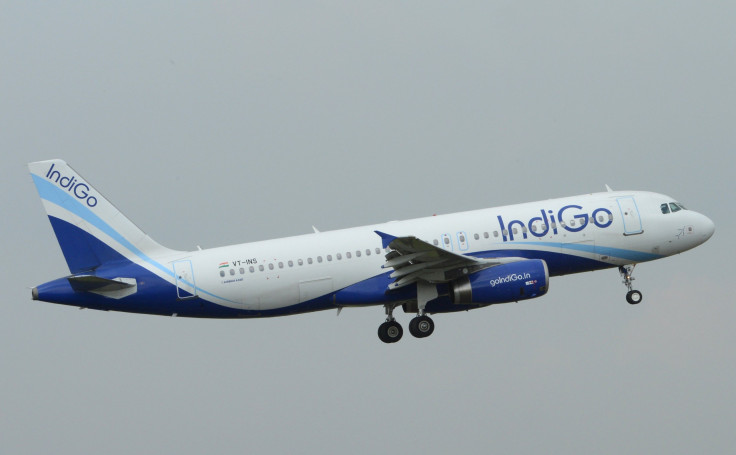Indian Government May Bail Out Beleaguered Airlines

KEY POINTS
- India has banned the entry of foreigners into the country through Apr. 15
- India's civil aviation ministry is considering a $1.6 billion rescue package
- that Indian airlines, excluding Air India, will lose of up to $600 million for the January-March quarter
The Indian government has banned all commercial international airline flights for a week starting Sunday in a bid to halt the spread of coronavirus.
No flights can leave or arrive in India over that period.
"These instructions are in addition to the travel restrictions/advisories already issued and under implementation," read a circular from the Indian aviation regulator, the Directorate General of Civil Aviation.
India has already banned the entry of foreigners into the country through Apr. 15.
“We will assess the impact of this announcement on our operations and take the appropriate action," Singapore Airline said in a statement.
Meanwhile, India's civil aviation ministry is considering a 120 billion rupee ($1.6 billion) rescue package for its aviation sector.
The Finance Ministry is also considering a proposal to temporarily suspend most taxes imposed on the aviation sector, including a deferment of the aviation fuel tax.
"Taxes could be deferred till the coronavirus spread is contained and the aviation sector can come back to its feet," a source told Reuters.
The travel restrictions and falling demand have hurt airlines in India.
IndiGo, India's largest carrier, cancelled several overseas flights and has grounded about 16 planes of its total fleet of 260 aircraft. The airline also asked its employees to take salary cuts of 10%-20%.
IndiGo’s domestic traffic has declined, while its international flights have vanished.
"Governments across the globe have issued travel advisories which have resulted in a virtual shutdown of all our international flights," said an IndiGo official. "Domestic bookings too are down around 20% and it is not clear that the situation will not get worse before it gets better. With the precipitous drop in revenues, the very survival of [the] airline industry is at stake. We know how hard it is for families to take a cut in take-home pay. But unfortunately, it is impossible for our company to fly through this economic storm without all of us making some sacrifice."
Vistara, a joint venture of Singapore Airlines and India's Tata Group, and low-cost carrier Go Airlines India have already halted their international operations.
Global aviation consultancy Centre for Aviation's India unit warned that no matter how much cash the government provides, most airlines in the country will have to contract their operations while the weakest carriers will likely have to cease their operations entirely.
CAPA estimated that Indian airlines, excluding the national carrier Air India, will lose of up to $600 million for the January-March quarter.
"In the absence of serious and meaningful government intervention, such an outcome could lead to several Indian airlines shutting down operations by May or June due to a lack of cash," CAPA said in a Wednesday report.
Syd Sharma wrote in SimpleFlying.com that the Indian government’s proposed bailout may not be enough to save the industry.
“On average, airlines need a 70%-75% load factor to break even,” he wrote. “With load factors expected to be significantly less in the coming months, [Indian] airlines may need more than just tax holidays. Some airlines will probably require direct capital in order to maintain financial obligations.”
Sharma said he thinks GoAir, which has curtailed international flights, and SpiceJet are the most at risk.
“SpiceJet is expecting a sharp decline in load factor as its stock has tumbled 73% from its peak last year,” he noted. “These two carriers will likely require government support the most in the coming months.”
But Sharma contends that Vistara will probably survive, as it is backed by the Tata Group and Singapore Airlines, who could potentially save the carrier via a bailout.
“The [government’s] $1.6 billion bailout will allow airlines some breathing room for the next few weeks, but airlines are still in peril,” Sharma added.
Meanwhile, India’s national carrier, state-owned Air India has its own troubles.
After enacting a flurry of cost-cutting measures, including a reduction in allowances and fuel reimbursement for officers, withdrawal of entertainment allowance for executive pilots, a 30%-40% cut in subsistence allowance paid to cabin crew on their foreign layovers and a 10% reduction in fuel reimbursement for all officers, the union representing Air India crewmembers called these moves “illegal.”
Sanjay Lazar, the general secretary of India Cabin Crew Association, or AICCA, wrote: “This unilateral change in service conditions and reduction in emoluments are also violations of industrial law of workmen cabin crew.”
The union representing Air India pilots have asked the government for help, citing that they haven’t received full pay since December and the risks they incur when repatriating passengers from virus-stricken nations.
The government has injected more than $3.24 billion into the national carrier since 2014, as it incurred losses of more than $2.8 billion during that period.
“With Air India planning for privatization, the government will be less incentivized to bail out the airline than in the past,” Sharma wrote. “However, we could see the virus delay the divestment process and the government forced to provide billions in aid. The pilot union’s complaints seem well-founded and exemplify the tough time the industry faces, with flight crew at the frontline. In all probability, the government will provide Air India will emergency funding so as to continue operations. We could also see a broader aid package coming in the coming months.”
© Copyright IBTimes 2025. All rights reserved.




















